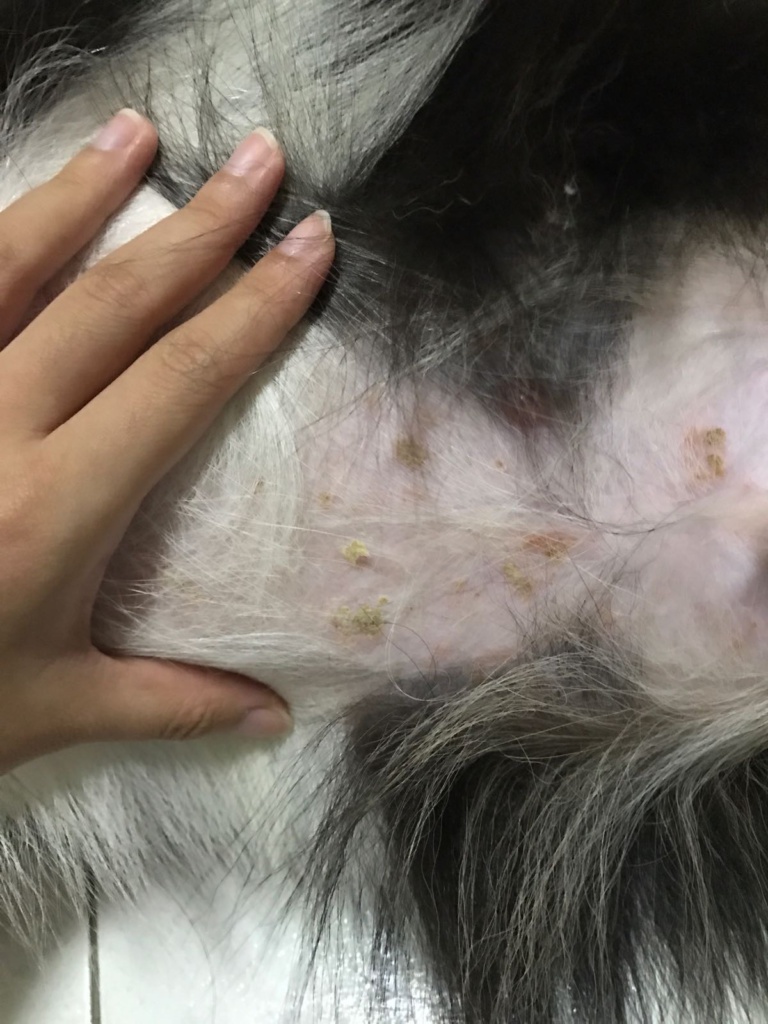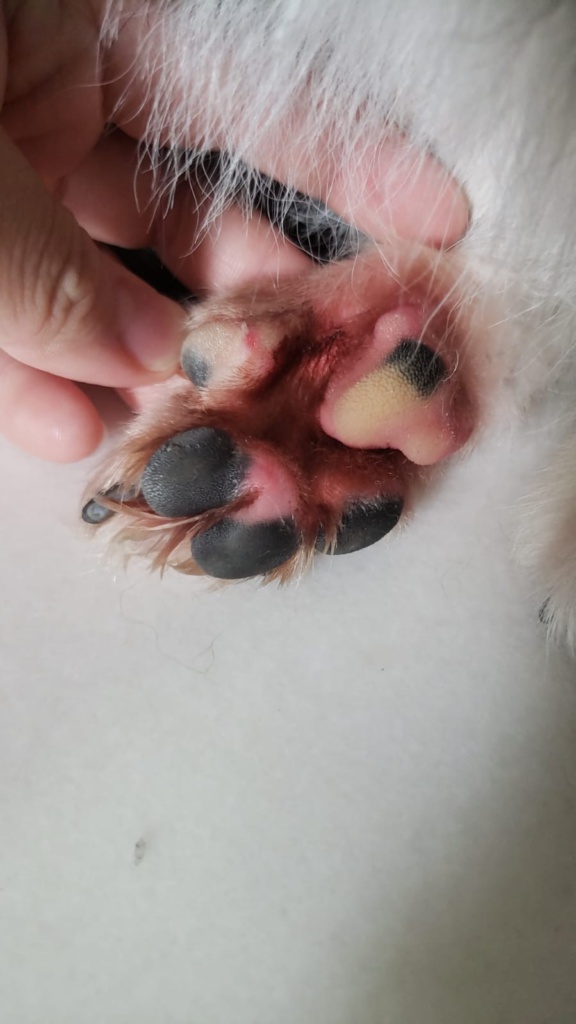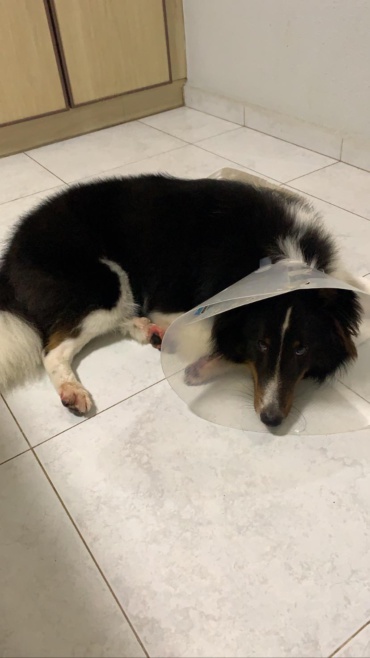Allergy is defined as an over-reactivity or hypersensitivity of the immune system to a particular substance called an allergen. Allergens are protein that can come from plants, foods or animals.
Allergies are one of the most common issues here in Singapore. Allergies can start to appear when your pet is around six months of age and the majority of dogs affected with allergies are over the age of one or two.
Types of allergy
- Flea Bite Allergy
- Food Allergy
- Environmental Allergy (Atopy)
The most common type of allergies seen in pets is either environmental allergy or food allergy. Common food allergens are chicken, dairy, eggs or beef. Common environmental allergens are pollens from trees/grasses and dust mites.
Signs and symptoms of allergies
- Itching of the skin
- Constantly biting and licking of the skin
- Scabs on the body
- Flaking on the skin
- Redness on the skin
Treatment options for food allergy would be elimination diet for 8 weeks with no other food, treats, flavoured chews or medications. A home cooked novel protein and carbohydrate diet or hydrolysed protein diet. Novel protein such as rabbit, kangaroo or frog meat can be sourced easily available from any meat supplier. Novel carbohydrate such as sweet potato, white potato and chickpea can be sourced easily from the supermarket. Hydrolysed protein diet can be found in veterinary clinics selling prescription diet.
Treatment options for environmental allergy would be giving medications or allergen specific immunotherapy. Medications such as apoquel, cyclosporine, corticosteroids and cytopoint injections can help to manage allergies. Allergen specific immunotherapy such as serum allergy testing or intradermal skin testing can help you identify what allergens your pet is allergic to. Most veterinary clinics can provide this service where they are able to draw your pet’s blood and send out the serum for lab testing.
*Do note that allergies CANNOT be cured but can only be managed
My Personal Experience
Hiro started showing signs of scabbing and crusting around his groin area when he was about six months of age. His main diet was kibbles and chicken is the main ingredient. We rarely give him treats and do not give him milk either.

Scabs started showing day by day and even though he wasn’t scratching or biting it, it definitely bothered me a lot and it was concerning. I immediately stopped his diet and avoided chicken at all cost and changed to another food brand with the main protein as lamb. To my relief, the scabs started going away and his groin area does not look nasty anymore!
Everything was going smooth sailing till he nearly turns 2 and that was the time when I found out that he has been licking and biting on his paws once in a while. It did not bother me at all as I thought he was only doing it due to boredom and a way to get our attention. Soon, the licking and chewing became so frequent that his paws were filled with saliva staining, fur loss and it was inflamed!

His angry red paws were definitely a red flag and worth the investigation! The vet did a simple skin cytology test and there is a yeast infection going on in all four paws! To manage the yeast infection in his paws, we got some antifungal and anti-itch medication to help him manage his allergies. The medication definitely helped to calm his angry red paws and he stopped biting and licking his paws! When there is no medication, I try to manage his allergies by washing his paws regularly with a medicated shampoo (Vetazole/Malaseb) and putting him on a cone to prevent him from traumatising his paws and applying antibiotic cream.
Conclusion
It is definitely worth a trip to the vet if your pet has been experiencing any of the above signs! Don’t let their skin issues deteriorate over time! If medications are not your preferred choice, regular washing of the paws with a medicated shampoo and putting on the e-collar at least so they do not traumatise their own paws just like silly Hiro!
I hope my personal experience dealing with Hiro’s allergies help to enlighten pet owners! Remember, each dog is different and our experiences may vary. Thankfully Hiro’s allergies are only his paws where yeast overproduces.
Follow us on Instagram: @hiroxcharoadventures to see the goofballs and their crazy daily antics!
